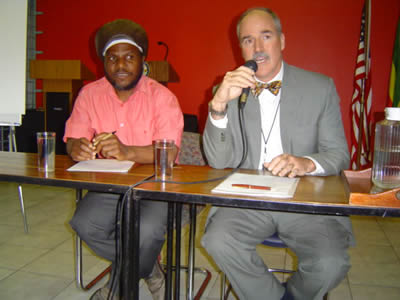Can we believe the survey?
Friday, August 24th, 2012 by Elizabeth NyamudaYesterday the Herald headline read ‘ZANU PF popularity surges: Poll’.
I was shocked to see how the Herald, which is a state controlled paper, was quick to praise this survey titled “Change and ‘New’ Politics in Zimbabwe” done by a US based NGO Freedom House. The survey like any survey poses challenges to its findings due to its delimitations and as noted in the report it mostly concentrated in the rural areas. Honestly in Zimbabwe where freedom of speech is non-existent who would answer saying that they support or belong to opposition parties? According to the survey 47% of the respondents refused to indicate who they would vote for. Of the 53% who declared their preference 31% chose ZANU PF and 20 the MDC. My point of fear of disclosure is brought to light as shown that many people feared disclosing their political affiliation.
It’s so easy to say I support ZANU PF because you know you are not stepping on anyone’s toes. But when one publicly says they are for the MDC you are mostly likely to irk a few people and place your life at great risk in your community especially in rural communities. I was enlightened in the other findings of the survey, which somehow newspapers reporting on this story ignored.
-85% are ‘sure’ or ‘very sure’ that they will be casting their ballots in the next elections
-47% of those who said they would vote in the next elections stated ‘this is the election that will make the difference’.
-A total of 35% respondents in this survey (compared with 16% in 2010) now believe that the next round of elections will be free and fair.
These are among other findings summarised on the Freedom House website.
The last time such a report was published saying MDC was the most popular ZANU PF quickly rubbished this report and Herald did not even report on it. And because this year’s report shows ZANU PF as the most popular party, the Herald took the story to their front page and the MDC was quick to rubbish this report. I believe the ballot in a free and fair election will show who the most popular party is. May the best party win in the next elections!










